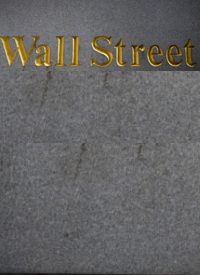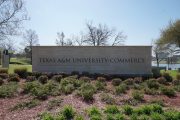
When President Obama speaks today at the site of Abraham Lincoln’s famous "House Divided" speech, he will find New York’s political establishment divided over the President’s campaign to rein in the financial industry. New York’s Mayor Michael Bloomberg plans to attend the President’s speech at The Cooper Union College, but is not expected to be cheering when the President speaks of stricter controls over banking and investment firms.
"The bashing of Wall Street is something that should concern everybody," the Mayor said last week. But the issue especially concerns New Yorkers, whose local economy and city government are heavily dependent on the giant financial companies. The front-page of today’s New York Post cries out: "Dear, Mr. President, Don’t kill the Golden Goose!"
The "draconian regulation and confiscatory taxation" being pushed by the President and Democrats in Congress "may play well on Main Street," the paper concedes. "But in New York, Wall Street is Main Street — the centerpiece of the city’s economy," the editorial said, adding that one of every 12 New Yorkers is connected to the financial sector, which generates 40 percent of the city’s personal tax revenue. "Every billion in Wall Street profits means $70 million in direct taxes for the city’s cash-starved coffers," the Post said. That has the city’s Mayor worried over the prospect of losing firms if the President’s regulation and taxation plans become law. Bloomberg, who made his personal fortune on Wall Street and is founder of the Bloomberg financial information company, has been especially vocal over two features of the reform bill, sponsored by Sen. Christopher Dodd (D-Conn.), Chairman of the Senate Banking Committee. One is a bank tax that would bring an estimated $90 billion to the federal treasury over the next 10 years; the other is a tax on bonuses for Wall Street brokers.
"If you want to worry about a few guys that got big bonuses, let me tell you, they will find someplace to work in this country or elsewhere," the Mayor said last week. "Those people bring in business. That’s why they get paid those bucks." Critics of the reform measures say some of the firms will likely move to Hong Kong, London, or elsewhere to escape the new regulations and taxation.
But while Bloomberg, an independent, is warning against the bill, the state’s most powerful Democrat is supporting it in the Senate. Senator Charles Schumer earlier this year proposed putting the $90 billion bank tax — originally put forward as a separate measure by Obama — into the reform bill. The Capitol Hill news site Politico reports a growing rift between the city’s Mayor and the state’s senior Senator. Bloomberg was in Washington last week and sat in on what was described as a Republican gripe session about the bill with Senate Majority Leader Mitch McConnell (R-Ky.) and others. Bloomberg would only confirm that he attended the meeting, but according to anonymous sources, the Mayor was sharply critical of Schumer’s role in supporting the legislation. Bloomberg has previously criticized the city’s congressional delegation in general for going against their hometown’s leading industry. But given the widespread public animosity toward the financial industry over the economic collapse of 2008 and the bailouts that followed, the Mayor appears to be taking an unpopular and potentially risky stand as Wall Street’s defender. Politico reported a source close to Schumer called the Mayor’s "jihad against Obama and Schumer and the Dodd bill" a "curious strategy. When you come to Washington and argue for next to no regulation, it puts New York more in the cross hairs, not less."
The bill does not cover two of the largest players contributing to the financial meltdown, the government-chartered companies known as Fannie Mae and Freddie Mac. Critics say the giant mortgage lenders were pressured by Congress and previous administrations to make housing loans to people who couldn’t afford them, leading to the foreclosure crisis and the collapse of housing market. The companies were taken into receivership at the height of the financial crisis.
The President, however, will likely find no shortage of support for his reform effort in the nation’s financial capital. Yesterday, local lawmakers and others rallied at City Hall in support of the reform, with some carrying signs aimed at one of the largest and most politically connected of the firms receiving federal bailout money. The signs carried the terse message: "Goldman Suchs."



